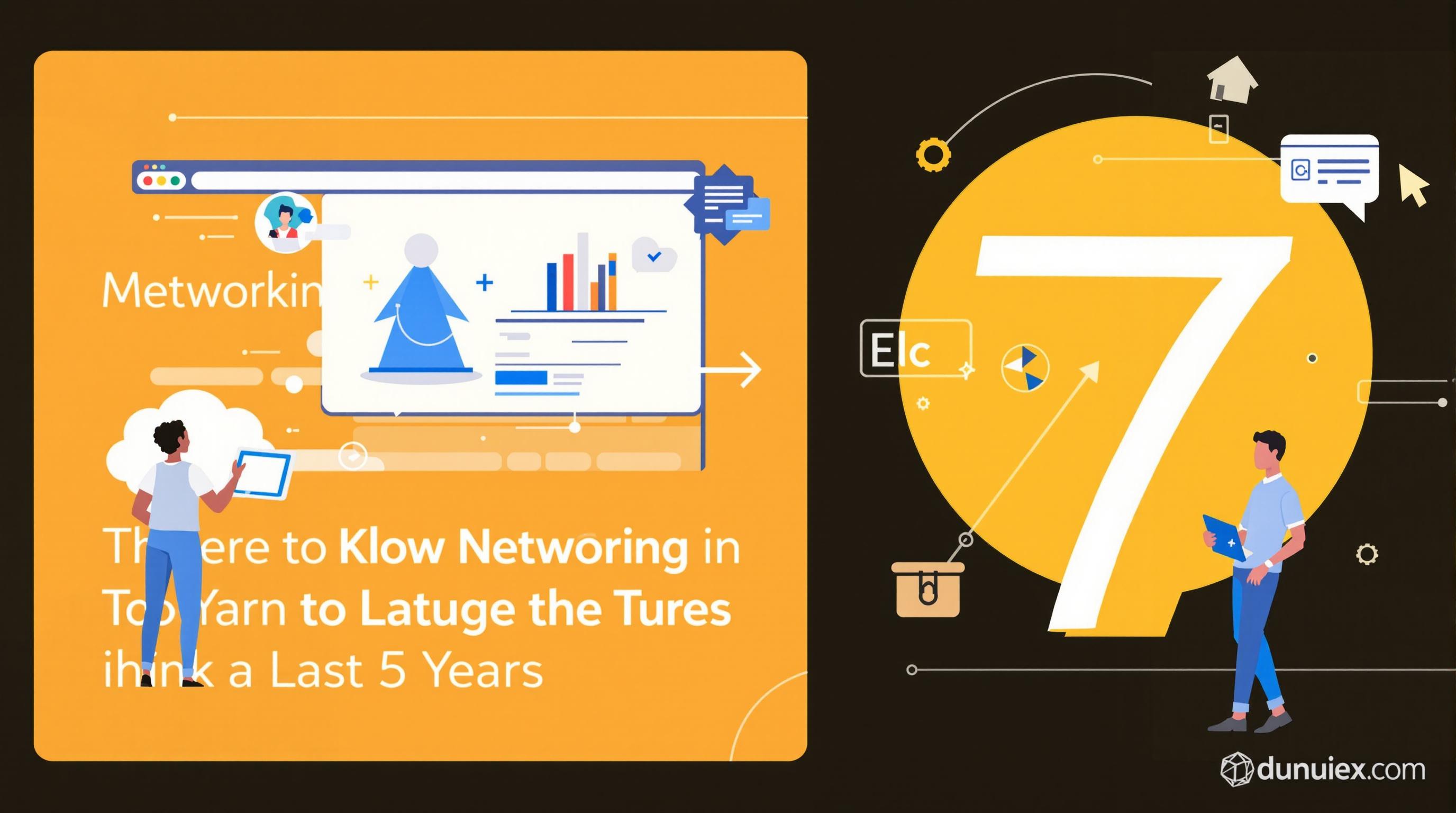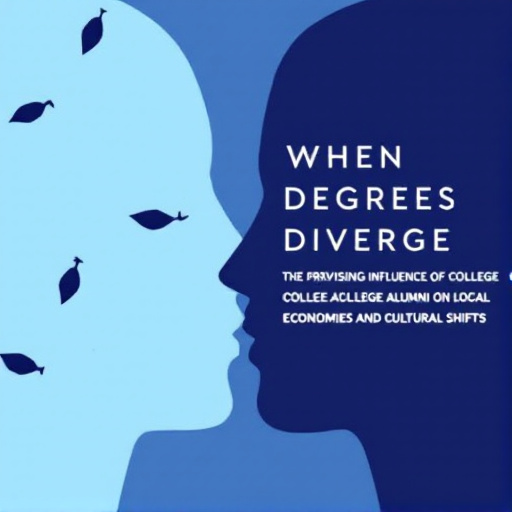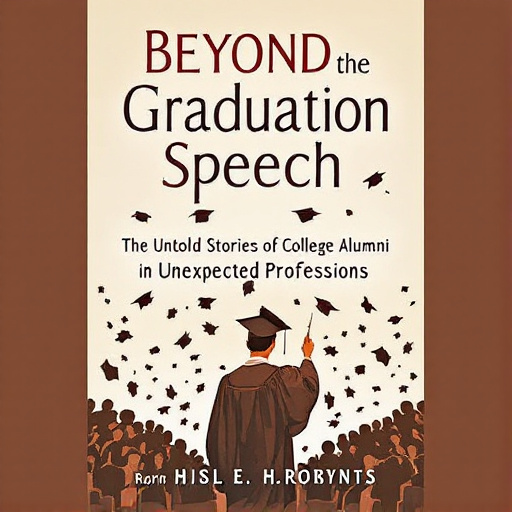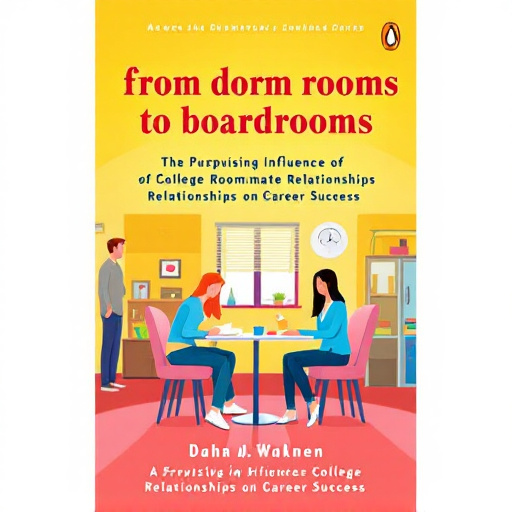Featured Articles
- Beyond the Graduation Speech: The Untold Stories of College Alumni in Unexpected Professions
- From Campus to Canvas: How College Alumni Shape the Future of Contemporary Art Movements
- "From Campus to Controversy: The Surprising Impact of Alumni on Political Polarization in Higher Education"
- "From Dorm Rooms to Boardrooms: The Surprising Influence of College Roommate Relationships on Career Success"
- From Fraternity to Fortune: How College Alumni Networks are Shaping the Crypto Landscape
When Degrees Diverge: The Surprising Influence of College Alumni on Local Economies and Cultural Shifts
When Degrees Diverge: The Surprising Influence of College Alumni on Local Economies and Cultural Shifts
The impact of college alumni extends beyond personal achievement; it reshapes local economies and influences cultural landscapes. This article explores the surprising ways in which graduates from higher education institutions contribute to their communities and beyond, weaving together stories, statistics, and insights.
Understanding the College-to-Community Connection
Picture a quaint town nestled between rolling hills, long known for its historical charm and occasional vineyard tours. Suddenly, a prestigious university opens its doors, and like a ripple on a pond, the local economy begins to change. Alumni from this institution start businesses, invest in local ventures, and create cultural events, transforming the very fabric of the community.
Statistics That Speak Volumes
According to a 2022 report from the American Council on Education, regions that host colleges experience a 5.5% faster economic growth rate than those that do not. This phenomenon is attributed to a variety of factors, including job creation, increased consumer spending, and a surge in innovation. Graduates are also more likely to remain in the vicinity, rooting themselves and fostering networks that enrich local life.
A Tapestry of Experience
A true storyteller, let me share a remarkable example: the transformation of Boulder, Colorado. Once a sleepy mountain enclave, it's now a thriving epicenter for technology and wellness industries, courtesy of the University of Colorado Boulder. Alumni like Jim Deters, co-founder of the tech startup Galvanize, have not only launched successful careers but have also played pivotal roles in the startup scene, creating thousands of jobs and drawing investors flocking to a town increasingly recognized for its innovative spirit. Their journeys illustrate how graduation can create a legacy, both economically and culturally.
Cultural Shifts: The Ripple Effect
Beyond job creation, the presence of college alumni stimulates cultural shifts. When graduates return to their hometowns or choose to stay, they often bring with them new ideas, artistic influences, and a broader worldview. Movements in art, music, cuisine, and lifestyle all begin to flourish when diverse perspectives collide.
Take a stroll through Minneapolis, Minnesota, a recently revitalized city that owes much of its cultural renaissance to local universities like the University of Minnesota. According to a 2023 study by the Knight Foundation, alumni have been instrumental in establishing art districts and organic food markets, reinforcing the identity of the community and encouraging local residents to embrace a more sustainable and inclusive lifestyle.
A Case of Serendipity
Let’s add a sprinkle of humor to the mix: Imagine a college grad who majored in Fine Arts deciding to revive the local farmer’s market. At first, the vendor selling organic kale might grimace at the sight of bizarre sculptures dotting the landscape. But soon, those sculptures become Instagrammable spots that attract throngs of tourists, cycling back into the economy while layering culture, food, and art into a beautiful chaos. That's the delightful paradox of culture — how unexpected talents can unexpectedly enhance local heritage.
Alumni Networks: A Platform for Change
Alumni networks play a crucial role in ensuring the sustainability of these shifts. An alumni association can create a powerful support system that champions local businesses, initiates community service projects, and fosters mentorship opportunities. This is well represented by the Case Western Reserve University alumni's collective efforts in Cleveland, Ohio, which have effectively halted the city's economic decline. By collaborating with local government and entrepreneurs, they facilitated the launch of several tech startups and nurtured early-stage ventures, bringing energy and opportunities to the community.
The Economic Boost: Jobs, Startups, and More
Let’s get down to brass tacks: college graduates contribute significantly to local economies. They stimulate job creation not just through the companies they establish but also via the numerous industries that flourish in university towns. A study from the Brookings Institution revealed that colleges and universities directly support millions of jobs nationwide, with the concentration of graduates leading to entrepreneurial activities that can redefine local landscapes.
The Hidden Economy
Think about it this way: when a new tech incubator opens in a city, it's not just the startup founder who benefits. Local coffee shops gain new patrons (and tireless laptop warriors). Bookstores curate their selections based on the graduate community's interests. The evolution is multi-dimensional — a web of interactions fueling the local economy.
Adventures in Entrepreneurship
Now, allow me to toss in a bit of pizzazz. Meet Jamie, a 27-year-old recent graduate from a prestigious culinary school who opened her first bistro in her sleepy hometown after graduation. Initially, Jamie thought the locals wouldn’t be ready for a fusion menu that combined her traditional training with flavors from her travels abroad. But guess what? The crowd went wild! From Tandoori Tacos to Saffron Risotto Burgers, Jamie’s restaurant became the talk of the town. Not only did it generate jobs, but it also sparked the growth of local food festivals, showcasing the confluence of culinary arts and community bonding.
Cultural Shifts Through Academia
There's an undeniable symbiosis between universities and the cultural landscape of a region. Schools become incubators of creativity, where students explore avant-garde ideas that later flourish in the community. Consider how literature festivals arise in tandem with university programs, influenced by emerging authors and thinkers stepping out into the community with fresh perspectives.
Colleges encourage lifelong learning that doesn’t stop at graduation. There’s a culture of curiosity that tends to lead to locals seeking out workshops, lectures, and cultural nightlife that aligns with their growing interests. Just picture the never-ending debates, poetry slams, and art installations springing up — all due to the refreshing influx of ideas inspired by alumni and their ventures.
Establishing an Entrepreneurial Ecosystem
Businesses support one another, creating an entrepreneurial ecosystem that extends beyond mere sales. When local schools and colleges team up with businesses to provide internships, everyone benefits — students gain experience, while companies nurture a local talent pool ready to dive into the workforce. Such ecosystems promote innovation and create an attractive local economy that retains local talent.
The Challenge of Brain Drain
But what happens when college graduates decide to leave for bigger cities, chasing dreams that feel too conspicuous to ignore? This phenomenon, known as brain drain, is a concern for regions that invest heavily in education. The National Student Clearinghouse estimates that over 1.2 million graduates leave their state after college to seek better opportunities. This leads many smaller towns to argue that they’re merely training future competitors instead of keeping talent at home.
But not all is lost! Communities can proactively combat this trend by creating vibrant environments that appeal to younger generations. Festivals, art exhibits, and technology hubs tailored to the interests of these alumni can carve out an attractive niche. For instance, Fort Collins, Colorado, has been notable in retaining its graduates by offering engaging work opportunities combined with a rich lifestyle filled with outdoor and community activities.
The Power of Local Governments
Local governments hold significant sway in this narrative as well. By investing in infrastructure, incentivizing entrepreneurs with grants, and developing partnerships with universities, they can create thriving hubs that nurture the products of higher education. Cities that foster this growth often see an influx of outside investment, turning them into beacons of opportunity.
Conclusion: Degrees Unite and Divide
Can the influence of college alumni reshape lives? Absolutely! As we’ve seen, their presence can catalyze dynamic interactions, enrich local economies, and pave the way for cultural transformations. Yet, it takes intentional efforts from communities, universities, alumni themselves, and local governments to create a system in which everyone benefits. Degrees may diverge in a multitude of paths, but collectively, they have the power to bridge gaps, fostering connections and transforming spaces for generations to come. The story of college alumni isn't just about individual achievement; it’s about community triumph, woven through shared experiences and binding ambitions.




